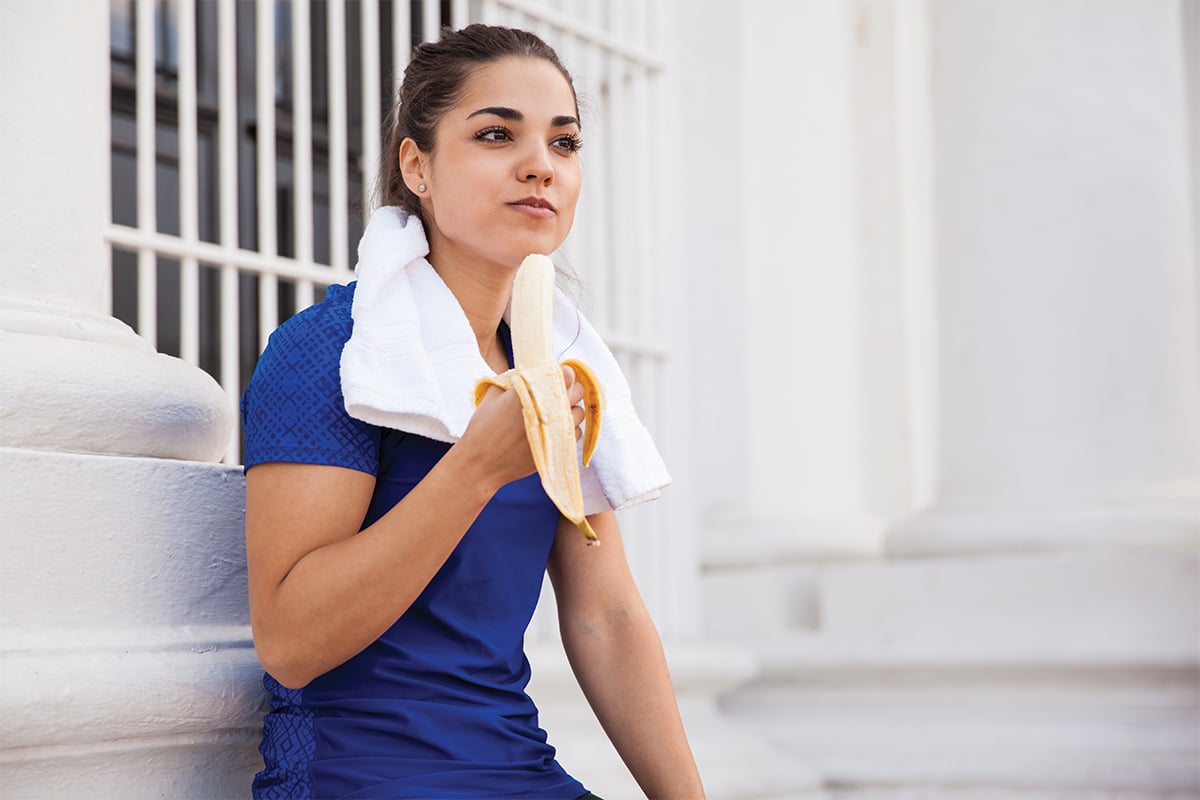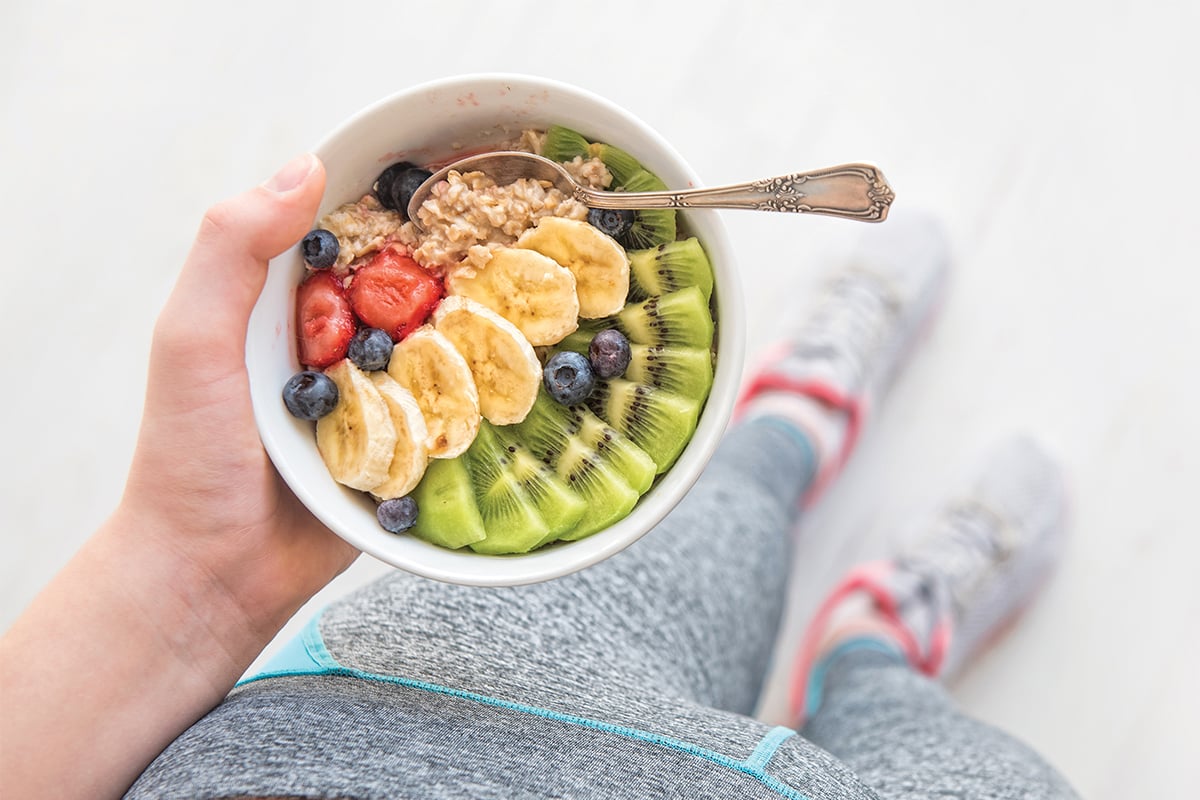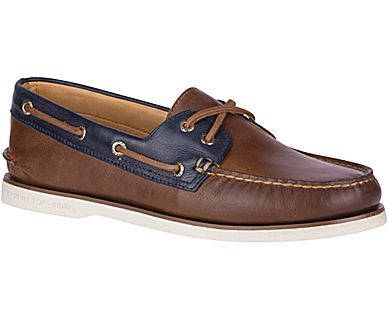The best pre and post workout for weight loss is a topic that is often misunderstood by many. Most people do not know what to do before or after their workout in order to get the most out of their workout. The workouts that most people do are not effective at all. They are going through the motions and not getting any results from them.
There are many different types of exercises that you can do when working out, but which ones should you choose? The answer is simple: pick exercises that will help build muscle mass quickly and efficiently.
If you want to lose weight, then you need to build muscle mass first because this will burn more calories than anything else when it comes down to it. This means that if you want faster results then focus on building muscle mass first before anything else!
Right here on Buy and Slay, you are privy to a litany of relevant information on best pre workout snack, considerations before your workout, and so much more. Take out time to visit our catalog for more information on similar topics.
Best Pre And Post Workout For Weight Loss

Diet and exercise are the primary pillars of a healthy lifestyle plan. But can coordinating eating and workout schedules improve our fitness results? And if so, how should our eating patterns differ before, during, and after activities?
Melding a top-notch diet with stimulating exercise can be quite a challenge. Eating at different times, not targeting healthy weight loss foods, skipping meals, overeating, snacking in between, working out irregularly, suffering from injuries … life gets in the way of our “healthy lifestyle plans.” While flexibility can be a necessity and a virtue, keeping to a diet-and-exercise schedule has remarkable advantages.
Eating regularly (5-7 times) throughout the day maintains proper blood sugar and energy levels, while regular exercise consistently burns consumed calories (Alencar et al. 2015). Indeed, proper timing of nutrition and activity helps lay the foundation for optimizing physical results.
**If you are a nutrition coach, it pays to supplement your expertise with these nutritional insights. Find more NASM nutrition courses here to futher your knowledge.
DOES FAST-AND-BURN WORK FOR WEIGHT LOSS?
As we explore the benefits of coordinating workouts with food intake-both quality and quantity-your first question might focus on breakfast (as in, should you skip it) or some other fast-and-burn routine.
Some studies suggest intense physical activity such as running, swimming or bicycling on an empty stomach can increase fat burn and promote weight loss (Schisler & Ianuzzo 2007). However, many experts caution against pre-exercise fasting. Running on empty may help burn fat faster, but it won’t leave enough energy for more rigorous training.
It also can increase the risk of strains, sprains, stress fractures and other injuries from exercise-related fatigue. Furthermore, letting the body get too depleted may cause people to overeat afterward, undoing the benefits of exercising in the first place.
Therefore, adequate fueling before exercise is the better route to improving performance (Rosenbloom & Coleman 2012). This keeps the body fueled, providing steady energy and a satisfied stomach. Knowing the why, what and when to eat beforehand can make a significant difference in your training.
As Jackie Kaminsky notes in her blog 10 Nutrition Myths, nutrient timing can be effective overall, but it’s not for everyone.
TRAINING AND NUTRIENT TIMING BEFORE EVENTS
A diet plan is crucial for maximizing daily workouts and recovery, especially in the lead-up to the big day. And no meal is more important than the one just before a race, big game or other athletic event.
Choosing the wrong foods-eating or drinking too much, consuming too little or not timing a meal efficiently-can dramatically affect outcomes. Eating the ideal pre-race/event meal can help ensure that all of the hard training and dedication pay off. Similarly, maintaining an appropriate daily sports-nutrition plan creates the perfect opportunity for better results.
WHY EAT BEFORE A WORKOUT?
The main goal of a pre-event/workout meal is to replenish glycogen, the short-term storage form of carbohydrate. This supplies immediate energy needs and is crucial for morning workouts, as the liver is glycogen depleted from fueling the nervous system during sleep. The muscles, on the other hand, should be glycogen-loaded from proper recovery nutrition the previous day.
The body does not need a lot, but it needs something to prime the metabolism, provide a direct energy source, and allow for the planned intensity and duration of the given workout. But what is that something? That choice can make or break a workout. It is a good idea to experiment with several pre-exercise snacks/meals and stick with the few that work best under given circumstances.
WHAT TO EAT BEFORE A WORKOUT
The majority of nutrients in a pre workout meal should come from carbohydrates, as these macronutrients immediately fuel the body. Some protein should be consumed as well, but not a significant amount, as protein takes longer to digest and does not serve an immediate need for the beginning of an activity. Fat and dietary fiber also should be marginal to minimize the potential for gastrointestinal upset during the activity (Smith & Collene 2015).
Research has demonstrated that the type of carbohydrate consumed does not directly affect performance across the board (Campbell et al. 2008). Regular foods are ideal (e.g., a bagel with peanut butter), but convenience foods (energy bars or replacement shakes) may be helpful because you can determine the calories and the desired mix of carbohydrates, protein and fats.
Exercisers might also supplement with a piece of fruit, glass of low-fat chocolate milk or another preferred carbohydrate, depending on needs.
Pre-exercise fluids are critical to prevent dehydration. To allow time to excrete excess fluid, start at least 4 hours before an activity and aim for an intake of 5-7 milliliters of water per kilogram of body weight (Rosenbloom & Coleman 2012). Before that, the athlete should drink enough water and fluids so that urine color is pale yellow and dilute-indicators of adequate hydration.
WHEN TO EAT BEFORE A WORKOUT?
Timing is a huge consideration for preworkout nutrition. Too early and the meal is gone by the time the exercise begins; too late and the stomach is uncomfortably sloshing food around during the activity. Although body size, age, gender, metabolic rate, gastric motility and type of training are all meal-timing factors to consider, the ideal time for most people to eat is about 2-4 hours before activity.
This much lead time can allow people to safely eat up to about 1,000 nutritious calories that will be ready for fueling the activity (Smith & Collene 2015). If lead times are much shorter (a pre-7 a.m. workout, for example), eating a smaller meal of less than 300-400 calories about an hour before the workout can suffice.
It is customarily recommended that exercisers consume about 1 gram of carbohydrate per kilogram of body weight 1 hour before working out, and 2 g of carbohydrate per kg of body weight if 2 hours before exercise, and so on (Dunford & Doyle 2008).
For a 150-pound athlete, that would equate to about 68 g (or 4-5 servings) of carbohydrate, 1 hour before exercise. For reference, 1 serving of a carbohydrate food contains about 15 g of carbohydrate.
There are about 15 g of carbohydrate in each of the following: 1 slice of whole-grain bread, 1 orange, ½ cup cooked oatmeal, 1 small sweet potato or 1 cup low-fat milk. This 150-pound athlete could consider consuming: ½ cup oatmeal, 1 small apple, ½ cup low-fat yogurt and 4 ounces 100% fruit juice-all approximately 1 hour before working out.
It is generally best that anything consumed less than 1 hour before an event or workout be blended or liquid-such as a sports drink or smoothie-to promote rapid stomach emptying. Bear in mind that we are all individuals and our bodies will perform differently. It may take some study to understand what works best for you. Athletes should experiment with the size, timing and composition of pre-event/activity meals to determine what will be best tolerated.
EFFECTIVE EATING BEFORE A WORKOUT
Preworkout foods should not only be easily digestible, but also easily (and conveniently) consumed. A comprehensive preworkout nutrition plan should be evaluated based on the duration and intensity of exertion, the ability to supplement during the activity, personal energy needs, environmental conditions and the start time.
For instance, a person who has a higher weight and is running in a longer-distance race likely needs a larger meal and supplemental nutrition during the event to maintain desired intensity.
Determining how much is too much or too little can be frustrating, but self-experimentation is crucial for success. The athlete ought to sample different prework-out meals during various training intensities as trials for what works. Those training for a specific event should simulate race day as closely as possible (time of day, conditions, etc.) when experimenting with several nutrition protocols to ensure optimal results.
SHOULD YOU EATING DURING A WORKOUT?
Supplemental nutrition may not be necessary during shorter or less-intense activity bouts. Athletes may need to eat during the activity if exertion lasts more than roughly 1 hour and/or environmental conditions require glycogen to be restored to maintain intensity and/or duration. If so, carbohydrate consumption should begin shortly after the start of exercise.
The general recommendation is based on the maximum rate of glucose absorption, which is to consume about 30-60 g of carbohydrate per hour during prolonged exercise (Rosenbloom & Coleman 2012). One popular sports-nutrition trend is to use multiple carb sources with different routes and rates of absorption to maximize the supply of energy to cells and lessen the risk of GI distress (Burd et al. 2011).
Sports drinks with 6-8% carbohydrate are quick and convenient sources of fluid, carbohydrate and electrolytes during extended bouts of exercise. Consuming 6-12 ounces of such drinks every 15-30 minutes during exercise has been shown to extend the exercise capacity of some athletes (ACSM 2007). However, athletes should refine these approaches according to their individual sweat rates, tolerances and exertion levels.
Some athletes prefer gels or chews to replace carbohydrates during extended activities. These sports supplements are formulated with a specific composition of nutrients to rapidly supply carbohydrates and electrolytes. Most provide about 25 g of carbohydrate per serving and should be consumed with water to speed digestion and prevent cramping.
WORKOUT RECOVERY BASICS AND NUTRITION
To improve fitness and endurance, we must anticipate the next episode of activity as soon as one exercise session ends. That means focusing on recovery, one of the most important-and often overlooked-aspects of proper sports nutrition.
An effective nutrition recovery plan supplies the right nutrients at the right time. Recovery is the body’s process of adapting to the previous workload and strengthening itself for the next physical challenge. Nutritional components of recovery include carbohydrates to replenish depleted fuel stores, protein to help repair damaged muscle and develop new muscle tissue, and fluids and electrolytes to rehydrate.
A full, rapid recovery supplies more energy and hydration for the next workout or event, which improves performance and reduces the chance of injury. Rapid recovery is especially crucial during periods of heavy training and anytime two or more training sessions happen within 12 hours (Smith & Collene 2015).
WHEN TO START REPLENISHING CARBS AFTER EXERCISE
Training generally depletes muscle glycogen. The first 30 minutes or so after exercise provide an important opportunity for nutritional recovery due to factors like increased blood flow and insulin sensitivity, which boosts cellular glucose uptake and glycogen restoration (Rosenbloom & Coleman 2012).
To maximize muscle glycogen replacement, athletes should consume a carbohydrate-rich snack within this 30-minute window. The recommendation for rapidly replenishing glycogen stores is to take in foods providing 1.0-1.5 g of carbohydrate per kg of body weight within 30 minutes of extended exercise (Smith & Collene 2015).
For a 150-pound athlete, that equates to between 68 and 102 g of carbs (or ~ 4.5-6.5 servings of carbs) immediately after exercise. Since this can be difficult to consume in whole foods shortly after activity, liquid and bar supplements may be useful and convenient after exercise.
Ideally, athletes should repeat this carbohydrate load for 2-hour intervals for up to 6 hours, or transition to carbohydrate snacks and meals if another intense training session will occur within 24 hours (Smith & Collene 2015). Consuming smaller amounts of carbohydrates more frequently may be prudent if the previous recommendation leaves the athlete feeling too full.
Bananas are a great source of healthy carbs, if you didn’t know!

WHAT ABOUT PROTEIN?
Muscle tissue repair and muscle building are important for recovery. Whether you’re focusing on endurance or strength training, taking in protein after a workout provides the amino acid building blocks needed to repair muscle fibers that get damaged and catabolized during exercise, and to promote the development of new muscle tissue.
Although daily protein requirements vary among individuals, consuming 15-25 g of protein within 1 hour after exercise can maximize the muscle rebuilding and repair process (Rosenbloom & Coleman 2012).
Recent research has further demonstrated that a similar amount of protein (approximately 15-30 g) after resistance exercise may even benefit athletes on calorie-restricted diets who also want to maintain lean body mass (Areta et al. 2014).
It is important to note that some literature emphasizing extremely high levels of protein intake-well beyond these recommendations-for strength training may be dated and lack quality research (Spendlove et al. 2015).
REHYDRATE EFFECTIVELY WITH FLUIDS AND SODIUM
Virtually all weight lost during exercise is fluid, so weighing yourself (without clothes) before and after exercise can help gauge net fluid losses. Replace fluids by gradually (within 4-6 hours) drinking 16-24 fluid ounces of a recovery beverage, sports drink or water for every pound of weight lost (Smith & Collene 2015).
It is important to restore hydration status before the next exercise period. Rehydration will be more effective when sodium is included with the fluid and food consumed during recovery-especially in hot/humid conditions. However, water may be all you need if exercising for less than 1 hour at a low intensity.
LISTEN TO YOUR BODY’S TIMING SIGNALS
While these recommendations are a good starting point, there are no absolute sports nutrition rules that satisfy everyone’s needs…so paying attention to how you feel during exercise and how diet affects performance is of utmost importance.
You may have to use different timing and alternate routines to create a nutrition and exercise combo that works best. Timing certainly is critical in sports nutrition, and optimizing that can make all the difference!
QUICK TIPS FOR EATING AND DRINKING BEFORE A RACE/EVENT
- Nutrients: Most should come from carbohydrates. Consume only small amounts of protein; limit fats and fiber (see these foods that are high in fiber that you should avoid!)
- Hydration: At least 4 hours before an activity, aim for 5-7 milliliters of water per kilogram of body weight.
- Timing: Ideal for most people is to eat 2-4 hours before an activity, up to about 1,000 nutritious calories. Consume 300-400 calories if lead time is much shorter (e.g., early morning workouts). Drinks or smoothies are preferred if you’re starting in less than 60 minutes.
BEST POST-WORKOUT MEALS
- Fruit smoothie made with a variety of frozen/fresh fruit and low-fat milk/yogurt, and possibly protein powder (depending on needs)
- Energy bar containing 15-20 grams of protein, with 100% fruit or vegetable juice
- Whole-grain bagel or English muffin topped with peanut butter and banana, with 100% fruit or vegetable juice
- Whole-grain pasta or cheese ravioli and tomato-based sauce, with whole-grain bread, steamed vegetables, low-fat/nonfat milk, and fruit
- Grilled chicken sandwich on whole-grain bread, with cottage cheese and a baked sweet potato
- Baked or grilled lean beef, chicken, turkey or fish, with steamed brown rice, a whole-grain dinner roll, cooked greens, low-fat yogurt and fruit
A good way to start recovery is to consume a snack with carbohydrates and a moderate amount of protein, plus fluids and sodium, within 30 minutes after exercise. If you have no appetite post-exercise, a recovery beverage may be a good option.
Cool down, chow down: Don’t skimp on food and fluids after a workout.
To recover quickly and completely, your body needs healthy fuel like the choices shown here-beginning within 30 minutes of your session’s end.

Best Pre Workout Snack
For some, breakfast is the most important meal of the day. But for others who manage to squeeze some gym time into their everyday routine, a pre-workout snack may be even more important. (Sorry, cereal mascots).
That’s why we tapped sports dietitian and exercise physiologist Bob Seebohar, MS, RDN, CSSD, CSCS, for intel on the right balance of macros and the best timing for snacks to keep you from getting hungry, maximize your performance, and keep you from bonking.
In addition, we’ve rounded up 16 ideas for pre-workout eats, from breakfast-y options, to keto and high protein muscle-building snacks, to keep you going strong.
When to eat before a workout
The body builds muscle and recovers 24/7, not just at the gym. Smartly timed snacks can give the body the fuel it needs to build muscle, burn fat, and recover as best it can. Here are some general timing tips:
- If you prefer to eat before exercising or if your workout will last longer than an hour: Seebohar suggests grabbing a snack about 45 to 60 minutes in advance.
- If you want to gain serious muscle: Some research suggests that a high protein snack right before you work out may be equally as effective at promoting muscle growth as a post-workout high protein snack. So, if your goal is muscle growth, you may prefer to have a protein-rich snack right before starting.
- If you’re going to be doing a long, endurance activity (like a half marathon or marathon): You’re gonna want to focus more on carbs — and you may want to start upping your carb intake as early as 48 hours before your event begins.
If you’re not entirely clear on what and when to eat for the kind of exercise you do, it’s a really good idea to get in touch with a CSSD (Certified Specialist in Sports Dietetics), like Seebohar, for some tailored advice.
How much to eat before a workout
While everyone’s nutritional requirements and preferences are different depending on their goals and activities, you actually don’t need to eat much to work out for 60 minutes or less, says Seebohar, so keep these in mind for your longer sweat sessions.
But if you’re gonna be hittin’ it pretty hard, he suggests a small snack — like a palm-sized serving of carbs, a half-palm of protein, or a quarter-palm of fat. And yes, we mean the palm on your hand, not the tree — although who among us hasn’t wanted to eat a palm tree-sized serving of carbs before?
Best pre-workout snacks for 30 minutes before your workout
Oops. Did you just check your watch and realize that you don’t have time to wait a full 45 to 60 minutes after snacking to start your workout? No worries. Here are three light (but v. balanced) snacks, that won’t sit in your stomach like a brick:
Fresh strawberry parfait with cottage cheese

This light but luxurious parfait isn’t a huge portion, but it packs in plenty of fresh strawberries — along with a little bit of yogurt and cottage cheese, and a sprinkle of nuts for staying power. It also contains half a cup of whole-grain cereal per serving for an extra little carb boost.
Apple peanut butter energy bites

The classic apple-and-peanut-butter combo gets an upgrade with raisins and chia seeds. If you’re in a rush, skip the extras and just grab an apple with PB. Try stashing some to-go packs of peanut or almond butter in your gym bag so you can chow down on your way to indoor cycling class.
Homemade apricot and almond energy bars

If you have time on your hands, mix up these DIY energy bars and stash the extras for later. All you’ll need for this no-bake recipe is a food processor and a few ingredients.
Short on time? Stock up on some store-bought bars with high quality ingredients and a 1:1 or 2:1 carb-to-protein ratio (as in, look for 10 to 20 grams of carbs and 10 grams of protein), Seebohar says. One of our favorites is RXBAR, which lists ingredients right on the front of the wrapper.
Best pre-workout snacks for muscle gain
Going for gains? These snacks deliver a quick dose of protein for optimal muscle growth.
Baked broccoli cheese and pepper omelet

Omelets are one of our favorite any-time-of-day meals. You can load them up with tons of your favorite veggies and — since you’re working out — splurge with full fat cheese. This baked style makes it easy to portion out snack sizes, or you can make them in a muffin pan. (It also contains 21 grams of protein in a serving, making it perfect muscle fuel.)
Almond coconut mocha smoothie

We love smoothies, but first — coffee. This recipe combines both. It’s perfect for an early-morning workout since the hit of caffeine will perk you up before you hit the gym. And with a scoop (or 2) of your fave protein powder, it will flood your body with what it needs to make new muscle.
Best pre-workout snacks for energy
These carb-rich snacks provide easy-to-digest carbs for energy, but are still balanced.
Berry fruit and yogurt granola parfait

A parfait sounds fancy, but it’ll only take you 3 minutes to throw together this energy-boosting combo of Greek yogurt, granola, and berries.
Hard-boiled egg and avo toast

Avocado toast never fails. When you have a heartier appetite, try this pre-workout version and add a hard-boiled (or fried) egg on top for added protein. There are a lot of ways to get fancy here, but we’re big fans of this classic combo before a morning run.
High-protein oatmeal

Oats are a classic morning staple, but if you don’t want to clean up a pot before heading to the gym in the morning, try this one as an afternoon snack. The recipe serves two, but we suggest dividing it into three portions and refrigerating the extras for smaller snack-size servings.
Best pre-workout snacks for weight loss
For weight loss, you’ll want a protein-rich snack (to help keep you full and satisfied) that’s still fairly low in calories. Here are a few.
Rice cakes with almond butter

If you’re gluten-free or just not big on toast, this is a great way to get your nut-butter snack in while adding healthy carbs to power you through. Plus, rice cakes don’t go stale as quickly as bread, so you can always keep a pack on hand in your pantry. Additionally, this balanced snack clocks in at just under 140 calories.
Tzatziki Greek yogurt chicken salad

Whip up this chicken salad for a snack, stuff it in half a pita pocket, and then use the remainder for lunch or dinner. To keep the calories under 150, wrap up your pre-workout serving in a large lettuce leaf instead of pita.
Best keto pre-workout snacks
These keto snacks are the bomb — the fat bomb, that is. They are high in fat with very minimal carbs.
BLT-stuffed avocados

Avocados are good. Avocados stuffed with the makings of a BLT are even better — and utilize some of the most drool-worthy keto-friendly ingredients. Use full fat Greek yogurt in place of mayo if you want a little extra protein boost.
Turkey avocado wrap

A wrap may sound like a meal, but this mini version is the perfect size for a pre-workout bite. The gluten-free “wrap” is actually just turkey wrapped around some avocado with shredded carrot for added crunch. It’s the perfect use-what-you-already-have-in-your-fridge kind of snack and super low in carbs to boot.
Best low calorie pre-workout snacks
These low calorie pre-workout snacks can help fuel your workout without using up a big chunk of your calories for the day (if you’re tracking) — and you’ll have plenty of calories left over for dessert too.
Whole orange smoothie

Swap out sugar-packed juice for the real deal in this whole-orange smoothie. Confused about what kind of protein powder to use? Seebohar likes Thorne Research or NOW Foods protein powders. Wanna lower the calories even more? Use half a banana rather than a whole.
Protein-packed cauliflower hummus and carrots

Hummus and carrots is a classic snack that works perfectly fine before a workout. This blogger makes a homemade version of the Mediterranean dip with a cauliflower base (making it lower in calories than the regular chickpea-based stuff), but feel free to grab prepackaged hummus and baby carrots at the store.
Best quick pre-workout snacks for on-the-go
Here are some low/no-prep snacks for workouts on the go.
Peanut butter and banana chia seed toast

PB and banana is the perfect on-the-go snack. For a longer workout, spread both on one slice of whole-wheat toast and add a sprinkle of chia seeds for a pop of extra nutrition and crunch. It comes together super-quick if you’re in a rush, but we don’t recommend running around with a piece of toast hanging out your mouth like an anime character — you might lose some banana.
5-Minute protein peanut butter energy balls

Make these no-bake peanut butter balls ahead of time, and you’ll have some healthy treats ready to fuel a week’s worth of sweat sessions. Seem like too much effort? Grab your favorite bars (we love CLIF Bar’s nut butter-filled ones), cut in thirds, and then roll them into balls for smaller bites.
Considerations Before Your Workout
Here are some other things you may want to be mindful of before you get your workout on.
Supplements
There are near-endless amounts of supplements that are marketed for pre-workout use. The difference between these and a snack is that these supplements — while they may contain certain ingredients that may boost your performance or assist with muscle growth or recovery — don’t provide a significant amount of calories like food does.
For that reason, they shouldn’t be used as a replacement for a pre-workout snack. With one major exception — protein powder! It provides calories from protein and can be used as a snack but is considered a dietary supplement rather than a food.
Here are a few other types of supplements you may encounter on the regs:
- Creatine. Creatine is a type of amino acid that may help improve your exercise performance by making it possible for your body to produce energy more quickly. It’s a popular supplement with lots of scientific research to support its use.
- BCAAs. Branched-chain amino acids (BCAAs) may help to promote muscle growth, but research shows that they may not be any more effective than other types of protein supplements.
- Caffeine. Caffeine — of coffee fame — can provide some small but significant improvements to exercise performance. Some pre-workout supplements have caffeine in them.
- Nitric oxide boosters. Nitric oxide is a gas that your cells produce that helps to dilate your blood vessels, allowing for increased blood flow. Better blood flow can improve your performance, so many athletes utilize nitric oxide “boosters” like beetroot or the amino acid citrulline.
- Pre-workout. Pre-workout supplements can contain any or all of the above ingredients, but the key ingredient in these products is usually caffeine. They help to provide a surge of alertness right before you go hard at the gym, and may help improve your performance too.
Hydration
It’s important that you don’t go into a workout dehydrated, so the American College of Sports Medicine recommends that you consume 5 to 10 milliliters of fluid per kg of body weight (or 2 to 4 milliliters per pound of body weight) in the 2 to 4 hours leading up to your workout.
This works out to about 10 to 20 ounces over 2 to 4 hours for a 150-pound person — not enough to make you feel sloshing in your belly, but enough to keep you from starting a workout in a dehydrated state. Your pee should be pale yellow.
If you’re gonna be outside on a hot day or doing a particularly intense workout, a pre-workout snack with some salt in it may help your body to retain fluid also — which can be helpful for staving off dehydration.
Frequently asked questions
Is it good to have a pre-workout snack?
That depends. According to Seebohar, you really don’t need one unless you’re going to be working out for 60 minutes or longer. But it’s totally up to you! If you’re hungry, it may be a good idea to have a little snack before working out so that you’re not distracted.
What is the best snack to eat before a workout?
That depends on what your workout goals are. If you want to build muscle, you should eat a high protein snack right before your workout (or right after) — but if your goal is to fuel yourself for a long endurance workout you’ll want a more carb-rich snack.
What should I eat 30 minutes before a workout?
Something fairly light and small, that contains a healthy balance of protein, fat, and carbs. A handful of nuts or a small protein smoothie are great choices.
Is it OK to work out on an empty stomach?
If you’re not hungry to the point of distraction or doing a long, super-intense workout, yes! While fasted exercise may not help you lose more body fat than exercising after eating, it’s okay to work out on an empty stomach (and some people even prefer it!).
What should I not eat before a workout?
Anything that will make you feel gross, TBH. Large meals (even large salads), rich fatty foods like fried chicken or lasagna, huge quantities of fluid… all of these can leave you feeling weighed down and exhausted before you even start moving.
The bottom line
To eat or not to eat? That is the (first) question. If you’re gonna be working out for longer than 60 minutes, the answer is yes. Be sure to include a balance of protein, fat, and carbs, but consider your goals too — carb up for a long run and pound the protein for muscle growth. Remember to drink a glass or two of water in the hours leading up to your workout too.



